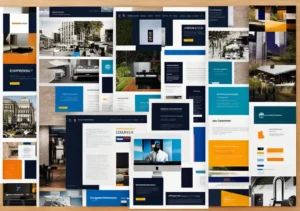Ever found yourself staring at the calendar in disbelief, realizing your technical job interview is just a day away? It can feel like you’ve been handed an impossible puzzle, tasked to piece it together without a clear starting point. Panic sets in, alongside a belated wish for more preparation time. But here’s the thing: it’s entirely possible to turn this around in the nick of time.
This blog post is your quick-turnaround guide to getting interview-ready in 24 hours. We won’t promise miracles, but we will offer you a solid, actionable plan that focuses on the most critical aspects of technical interview prep. So, take a deep breath. You’ve got this, and we’re here to help guide you through.
Quick Takeaways:
- Dive into the company’s website and GitHub to align your skills with their tech stack; it’s crucial and feasible even on short notice.
- Refresh your core technical skills focusing on the basics and utilizing resources like FreeCodeCamp for a quick polish.
- Simulate the interview environment while practicing coding problems from sites like LeetCode to enhance your problem-solving speed and efficiency.
What Can You Do to Understand the Company’s Tech Stack?
Let’s cut to the chase. Time is of the essence, and you’ve got a technical job interview lined up — shocking, right? Well, here’s the kicker: understanding the company’s tech stack is like picking the right tools for a job. It’s paramount. So, how can you swiftly get up to speed? Start by combing through the job description. Companies often list the technologies they’re using right there. Next, take a quick dive into their website, specifically the careers, engineering blog, or press release sections. They’re treasure troves of insights into the technologies they value.
But don’t stop there. A little social media sleuthing can go a long way. LinkedIn profiles of current technical employees might hint at the tech stack in use. Additionally, comb through GitHub repositories if the company is open source-friendly. This will not only give you a peek into the technologies but also their coding philosophy.
Aligning your skills with their stack doesn’t mean becoming an overnight expert. Instead, identify overlaps between your expertise and their tools. This tailored understanding showcases your proactive nature and willingness to adapt, setting you apart from other candidates.
How to Brush Up on Your Core Technical Skills?
Now onto the meat and potatoes — your core technical skills. These are the backbone of your interview performance. You might wonder, “Where do I even begin?” Start with the fundamentals. Reviewing basic programming concepts, design patterns, and data structures is key. Why? Because these form the basis of most technical questions you’ll face.
Use the job description as your north star. It often highlights the skills and technologies prioritized by the employer. Don’t try to boil the ocean; focus on the essentials that match the job’s requirements and your existing skillset. For instance, if you’re interviewing for a web development role and your JavaScript is rusty, now’s the time for a quick refresher. Sites like FreeCodeCamp and Codecademy offer targeted exercises to get your skills up to speed.
Remember, the goal is not to cram but to refresh your understanding and confidence in your core skills. Even a couple of hours spent revisiting problem-solving strategies or debugging techniques can make a significant difference in your interview performance.
Can Practicing Coding Problems Help?
Absolutely, practicing coding problems can serve as the ace up your sleeve. Think of it as sharpening your sword before battle. Not only does it bolster your problem-solving skills, but it also helps in reducing interview anxiety. The trick is to choose your battles wisely. Given the time constraint, prioritize practicing problems that are commonly encountered in technical interviews.
Where to find these problems? Websites like LeetCode, HackerRank, and CodeSignal are your best friends. They offer a plethora of coding challenges sorted by difficulty level and topic. Focus on problems related to the company’s tech stack or those mentioned in the job description.
Here’s a pro tip: simulate the interview environment. Set a timer for each problem to get used to solving under time pressure. This method can significantly enhance your ability to think on your feet, a crucial skill during the real deal.
Remember, the aim is not to solve an exhaustive list of problems but to get comfortable with the process of articulating your thought process and code efficiently. Even working through a handful of problems can boost your confidence and improve your coding fluency.
Ultimately, preparing for a technical job interview in one day is a tall order, but with a strategic approach, you can maximize the impact of your efforts. Focus on understanding the company’s tech stack, brushing up on your core technical skills, and practicing coding problems to sharpen your edge. Remember, confidence plays a crucial role, so keep a positive mindset and believe in your capabilities. Happy interviewing!
How to Prepare for Technical Questions?
Let’s dive straight into the meat of the matter – preparing for those nerve-wracking technical questions. Whether it’s algorithms that tie your brain in knots or system design questions that leave you staring into the abyss, I’ve got you covered.
First off, breathe. Panic is the mind-killer, as they say. Now, on to more practical advice:
Tackle Algorithms with Confidence:
- Understand the Basics: Before anything else, make sure you’ve got your basics down. Data structures (like arrays, linked lists, trees, and graphs) and algorithms (sorting, searching, etc.) are your bread and butter here.
- Practice Makes Perfect: Lay your hands on coding platforms like LeetCode, HackerRank, or CodeSignal. The more problems you solve, the more patterns you’ll recognize. And guess what? Many interview questions are just variations on common themes.
Mastering System Design:
- Lay a Strong Foundation: You should be familiar with basic system design principles and concepts like load balancing, caching, database design, etc. Websites like GitHub offer fantastic resources to get you started.
- Think Aloud: When presented with a system design question, start by outlining your high-level approach before diving into specifics. Interviewers love to see your thought process, so think of this as narrating the adventure of creating a system.
A Unique Piece of Advice:
Here’s something most might not tell you – practice explaining complex concepts in simple terms. Can you describe how a blockchain works or the essence of machine learning to someone without a technical background? This skill not only proves your deep understanding but also makes you a standout candidate for teams looking for communicators who can bridge gaps.
How Should You Present Your Past Projects?
Talking about your previous projects can be a slippery slope. You want to be comprehensive but not drown in details. Here’s how you can keep your narrative crisp and compelling:
The STAR Method:
A tried and true strategy for structuring your responses effectively, *STAR (Situation, Task, Action, Result)* helps you narrate your experiences succinctly. Here’s a quick breakdown:
- Situation: Where and when did your project happen?
- Task: What were you responsible for?
- Action: What actions did you take to address the tasks?
- Result: What was the outcome of your efforts? Quantify this with data if possible.
Flex Your Tech Muscles:
When talking about the technologies you’ve used, don’t just list them – highlight how you used them to solve problems. For example, rather than saying, “I used React,” say, “I leveraged React to build a dynamic, user-friendly interface that led to a 30% increase in user engagement.” This shows application and impact, not just familiarity.
The One Thing That Sets You Apart:
Talk about a lesson learned . Here’s something few candidates do but it can make a huge difference. Share a quick story about a challenge or failure in the project and what you learned from it. This demonstrates growth, resilience, and the fact that you can turn setbacks into valuable lessons.
Remember, it’s not just about the tech—it’s about how you applied it to create value, solve problems, and learn from the experience. Keep your narrative focused, engaging, and, most importantly, authentic. Your passion for your craft and your capacity for reflection and growth can set you apart from the crowd.
And there you have it, folks. Armed with these tips and a healthy dose of confidence, you’re all set to tackle that technical job interview head-on. Remember, preparation is key but so is being true to yourself. Good luck!



